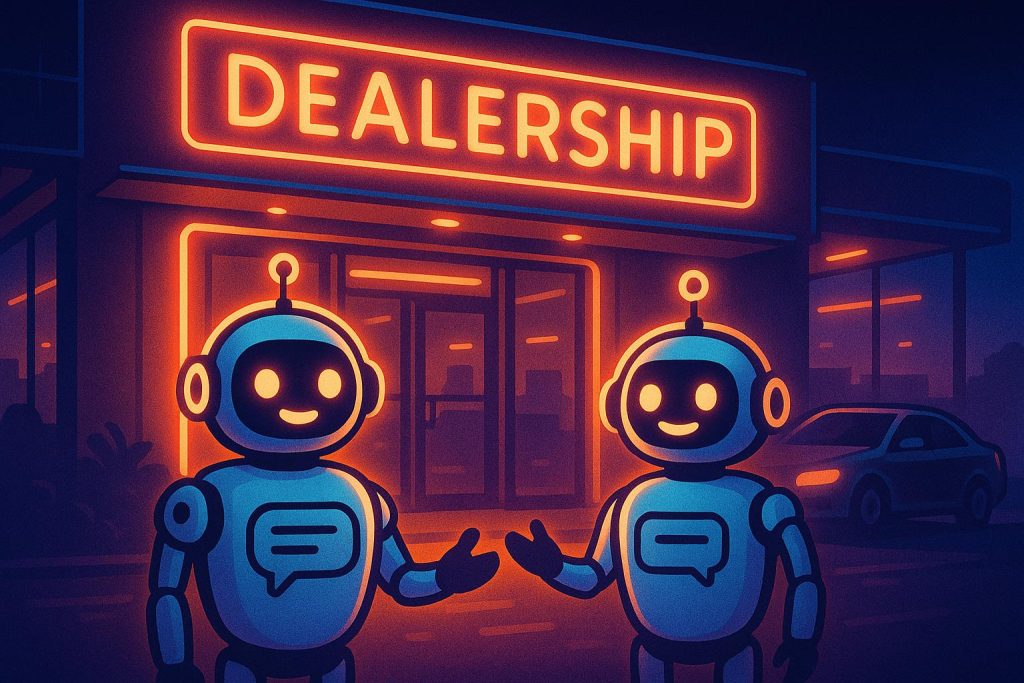Listen to the article
Automotive dealerships in the U.S. are set for a radical transformation as AI integrates into every facet of their operations, promising faster deals, personalised customer experiences, and enhanced profitability over the next three years.
Ramsey Theory Group’s CEO Dan Herbatschek has outlined a transformative vision for artificial intelligence (AI) in U.S. retail automotive dealerships, predicting a profound reshaping of dealership operations over the next three years. According to Herbatschek, AI-native workflows will revolutionise every profit centre and customer touchpoint, compressing sales cycles, increasing finance and insurance attachments, strengthening compliance, and steering dealerships toward data-driven models focused on customer lifetime value. He emphasises that dealerships are not merely adding AI tools to existing processes but rebuilding their entire operational paradigms around AI integration.
Herbatschek highlights three primary areas where AI will drive change in dealerships. First, the automation and “copilot” workflows will relieve staff from routine tasks such as data entry, document preparation, lead follow-up, and credit approvals by automating or semi-automating them. These AI copilots will assist sales, finance and insurance, business development, and service departments by suggesting next-best actions, identifying risks in real time, and improving interdepartmental coordination. This approach aims to accelerate deal throughput, reduce rewrites, and maintain consistent execution of best practices, especially beneficial for less-experienced staff. However, the success of these measures depends heavily on overcoming challenges related to data quality, system integration, staff adoption, and regulatory compliance, particularly regarding explainability of AI decisions in finance and credit.
The second area revolves around predictive and dynamic inventory, pricing, and demand management. AI models are expected to forecast sales demand with granular precision—down to vehicle trims, colours, options, and regional markets—allowing dealerships to optimise stock and reduce costly dead inventory. Real-time pricing engines will respond dynamically to market factors, competitor behaviour, inventory status, and consumer demand elasticity to fine-tune retail prices, discounts, incentives, and trade-in valuations. Early risk detection related to slow-moving or aging stock will enable proactive measures such as price adjustments or targeted marketing. Such innovations could lead to improved margins by reducing reliance on blanket discounts and enhancing sales velocity, thereby giving adopters a marked competitive advantage.
Thirdly, AI will enable hyper-personalised sales and retention experiences through customer lifecycle intelligence. Instead of reacting to customer inquiries, dealerships will leverage predictive analytics to proactively engage customers before they shop around, become eligible for trade-ins, or require service. AI-powered conversational agents will manage lower-friction interactions—like quoting, scheduling, and financing options—escalating human involvement only when strictly necessary. This personalised approach is projected to improve customer retention, focusing resources where they are most effective, and differentiate dealerships by enhancing customer experience through speed, relevance, and simplicity.
Supporting these projections, industry data confirms a rising commitment to AI adoption among dealerships. A survey conducted by Fullpath found that over 80% of car dealerships expected to increase their AI budgets in 2025, with about a third already using AI primarily in marketing and advertising functions, reporting return-on-investment increases exceeding 20%. Nonetheless, current utilisation remains uneven, with another study by Lotlinx revealing that a majority of dealerships struggle to harness AI’s predictive capabilities across service departments, inventory management, and pricing optimisation—a sign of considerable untapped potential.
The automotive service segment is also seeing an AI-driven evolution, with Charisma! Insights reporting that AI is becoming crucial in tackling technician shortages and escalating repair costs. Their research projects near-universal AI adoption in service departments by 2030, underscoring AI’s role in operational efficiency and customer satisfaction growth. Additionally, a report by Conversica highlights how AI agents are already instrumental in enhancing customer engagement, service revenue recovery, and retention through workflow automation and personalised interactions.
Despite the promising outlook, challenges remain, notably around the integration of disparate systems, maintaining high-quality data, cultivating trust and adoption among dealership staff, and navigating evolving regulatory landscapes. Dealerships that successfully navigate these barriers and embrace AI-driven workflows are expected to achieve faster deal closures, higher backend profitability, enhanced compliance, and stronger customer loyalty.
Ramsey Theory Group, which combines advanced mathematical approaches with practical AI innovations under Herbatschek’s leadership, is positioning itself at the forefront of this automotive AI revolution. As dealerships rebuild their operational frameworks around AI capabilities, the sector may witness an era of unprecedented efficiency, customer-centricity, and profitability.
📌 Reference Map:
- Paragraph 1 – [1], [4]
- Paragraph 2 – [1], [6], [3]
- Paragraph 3 – [1], [3], [7]
- Paragraph 4 – [4], [5], [3]
- Paragraph 5 – [2], [6]
- Paragraph 6 – [1], [3], [6]
- Paragraph 7 – [1], [4]
Source: Fuse Wire Services


